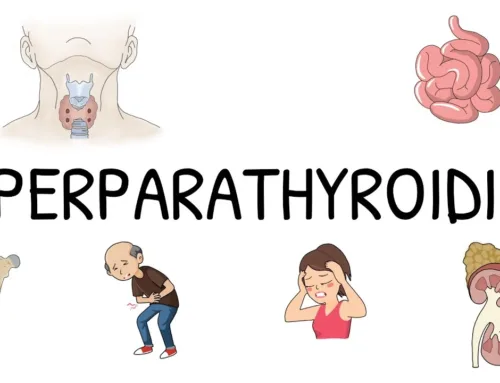Graves’ disease is an autoimmune disorder that affects the thyroid gland, causing it to produce too much thyroid hormone. Approximately 1 in 200 people are estimated to develop Graves’ disease, which is more common in women than men. While the causes of Graves’ disease are not entirely understood, genetics may play a role. In this blog, we will discuss the potential genetic factors involved in Graves’ disease and whether or not it is possible for a parent to pass the condition on to their child.

What is Graves’ Disease?
Graves’ condition is an autoimmune condition that causes the thyroid gland to create too much thyroid hormone, leading to a range of signs, including weight loss, fatigue, anxiety, and an irregular heartbeat. While the cause of Graves’ disease is not fully understood, it is believed to involve a combination of genetic and environmental factors.
Symptoms of Graves’ Disease
Graves’ disease is an autoimmune disorder affecting the thyroid gland.
Symptoms include,
- Weight loss
- Increased appetite
- Palpitations
- Sweating
- Tremors
- Anxiety
- Insomnia
- Additional symptoms may include muscle weakness, fatigue, and frequent bowel movements.
- Eye problems such as bulging eyes, double vision, and eye irritation may also occur.
- In rare cases, Graves’ disease can cause thyroid storm, a life-threatening complication with fever, rapid heart rate, and confusion.
Genetics and Graves’ Disease:
Research suggests genetics may play a role in developing Graves’ disease. Studies have shown that people with a family history of autoimmune disorders, including Graves’ disease, are more likely to develop the condition. Having a first-degree relative with Graves’ disease may increase the risk of developing the condition by as much as 20%.
The exact genes involved in Graves’ disease are not fully comprehended, but it is thought that variations in certain genes may make a person more susceptible to developing the condition. These genes may be involved in regulating the immune system and thyroid function.
While genetics may play a role in developing Graves’ disease, it is not a strictly inherited condition. Most people with a family history of Graves’ disease do not go on to develop the condition themselves. This means that just because a parent has Graves’ disease does not necessarily mean their child will also develop the condition.
If you have Graves’ disease and are planning to have children, discussing your family history with your healthcare provider is important. They may recommend screening your child for thyroid function or other potential risk factors. However, having a family history of Graves’ disease does increase the risk of developing the condition.
Is it possible to cure this disease?
While there is currently no known cure for Graves’ disease, it can be managed effectively with proper treatment. The goal of treatment is to reduce the production of thyroid hormones, normalize hormone levels, and alleviate symptoms. Treatment options may include medications, radioactive iodine therapy, or surgery to remove the thyroid gland. Your healthcare provider will determine the best course of treatment based on your circumstances and the severity of your condition. With appropriate management, many people with Graves’ disease can control their symptoms and lead healthy, productive lives.
Conclusion:
Graves’ disease is a complex autoimmune disorder that may have genetic factors involved in its development. While having a family history of Graves’ disease does increase the risk of developing the condition, it is not a strictly inherited condition. If you have Graves’ disease and are planning to have children, discussing your family history with your healthcare provider and being aware of the potential risk factors is important. People with Graves’ disease can lead healthy, fulfilling lives with proper screening and management.




Leave A Comment